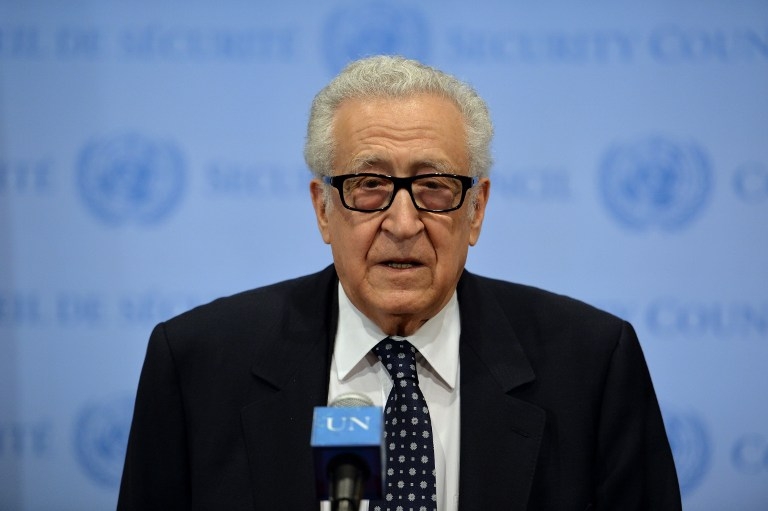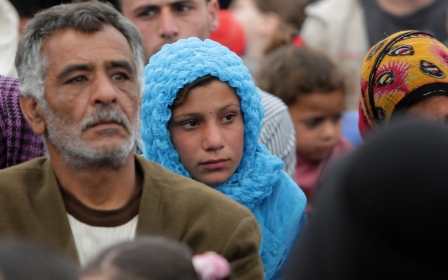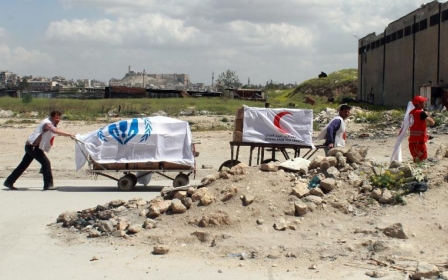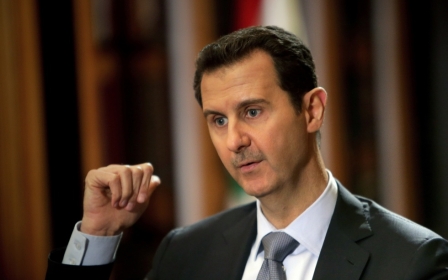Former UN envoy: Syria becoming 'another Somalia'

Former UN envoy for Syria Lakhdar Brahimi has warned that the war-torn country was heading toward becoming "another Somalia" ruled by warlords, in an interview published in a German weekly this weekend.
He also said that the entire region may "blow up" if a political solution is not found.
Brahimi, the former special representative on Syria for the United Nations and the Arab League, resigned in frustration last month after making little progress towards ending the brutal civil war, now in its fourth year.
When asked what he predicted would ultimately become of Syria, the veteran Algerian diplomat told der Spiegel: "It will become another Somalia. It will not be divided, as many have predicted. It's going to be a failed state, with warlords all over the place."
Brahimi also painted a grim picture for the countries neighbouring Syria.
"Unless there is a real, sustained effort to work out a political solution, there is a serious risk that the entire region will blow up. The conflict is not going to stay inside Syria," he said.
Brahimi, who previously served as a UN special representative for Iraq, Afghanistan and South Africa, oversaw two rounds of peace talks between President Bashar al-Assad's regime and the fractured political opposition-in-exile. But during two years in the post, he was unable to stop the bloodshed in a conflict that has killed more than 162,000 people and created millions of refugees.
He also warned of the danger posed by the rise of extremist Islamist groups in Syria, and the threat they posed to the West.
He said the Islamic State of Iraq and the Levant (ISIL) - a rebel group known for its ruthless tactics and suicide bombers -"is active in both Syria and Iraq already, and Jordan is really struggling to continue resisting. Even Turkey. According to a senior Iraqi official, ISIS has carried out 100 operations in Syria and 1,000 operations in Iraq in just three months."
He added that there were 500 or 600 French nationals, and roughly the same number of Britons, fighting in Syria, together with several thousand non-Syrians.
"These are your nationals that are training in Syria and that are part of [ISIL], which believes that you have got to build an Islamic state all over the world. That's a threat to you, isn't it?"
Chemical weapons removal
Brahimi's grim assessment of the country's future came as it was announced that one of two ships upon which Syria's chemical weapons have been stored after being handed over by the government had left for the United States and Finland, where its cargo will be destroyed.
The Norwegian vessel Taiko departed on Sunday, the Organisation for the Prohibition of Chemical Weapons (OPCW) said in a statement.
A second ship, the Danish Ark Future, is to stay in Syria in order to receive the remaining chemical weapons held by the government.
"We remain focused on removing the last consignment of chemicals from Syrian territory and urge the Syrian authorities to complete the removal as soon as possible," the OPCW Director-General, Ambassador Ahmet Uzumcu, said in the statement.
Around 7.2 percent of Syria's declared chemical weapons arsenal remains in the country, Sigrid Kaag, the UN official overseeing the removal of those weapons, said on Thursday.
Under a US-Russian deal negotiated last year, Syria signed up to the Chemical Weapons Convention and agreed to the destruction of its entire chemical weapons arsenal by 30 June of this year.
The agreement was reached after deadly chemical attacks outside Damascus last August that reportedly killed hundreds of people. The West blamed Assad's regime but the government said rebels were behind it.
Middle East Eye propose une couverture et une analyse indépendantes et incomparables du Moyen-Orient, de l’Afrique du Nord et d’autres régions du monde. Pour en savoir plus sur la reprise de ce contenu et les frais qui s’appliquent, veuillez remplir ce formulaire [en anglais]. Pour en savoir plus sur MEE, cliquez ici [en anglais].




